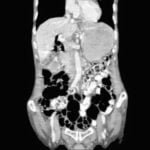
Screening and eradication of Helicobacter pylori for gastric cancer prevention Important questions answered
| Gastric cancer remains the 5th most common cause of cancer deaths. Major breakthrough in stomach cancer has been the identification of H pylori relation to gastric cancer . A global consensus meeting was held to review current evidence and knowledge gaps and propose collaborative studies on population-wide screening and eradication of Helicobacter pylori for prevention of gastric cancer Summary of recommendations are : CQ 1. Is gastric cancer still a public health threat and underestimated in the world? Statement 1: Although the global age-standardized incidence and mortality rate of gastric cancer is decreasing, the number of new cases of gastric cancer remains high due to an increase of the elderly population. CQ 2. Does H. pylori infection, the major cause of gastric cancer, remain prevalent in the world? Statement 2-1: Although the prevalence of H. pylori is decreasing in most Western countries, it remains high in populations with a high incidence of gastric cancer. CQ 3. What is the proportion of gastric cancer attributable to H. pylori infection? Statement 3: The worldwide attributable fraction for H. pylori in gastric cancer is higher than 85%, indicating that the majority of gastric cancer can be prevented if H. pylori infection is eliminated from a population. CQ 4. Does H. pylori eradication reduce the risk of gastric cancer in H. pylori infected subjects? Statement 4: Eradication of H. pylori reduces the risk of gastric cancer in infected subjects. CQ 5. Does H. pylori eradication reduce the risk of metachronous gastric cancer after curative endoscopic resection of early gastric cancer? Statement 5: Eradication of H. pylori after resection of early gastric cancer is recommended because it reduces the risk of metachronous gastric cancer. CQ 6. Who should we actively screen and treat H. pylori? Statement 6: Screening and eradication of H. pylori for gastric cancer prevention is recommended in populations with a high incidence or high risk of gastric cancer. CQ 7. When should we actively screen and treat H. pylori? Statement 7: We recommend screening and eradication of H. pylori before the development of atrophic gastritis and intestinal metaplasia. CQ 8. Is screening and eradication of H. pylori cost-effective for gastric cancer prevention? Statement 8: The strategy of screen-and-treat for H. pylori infection is most cost-effective in young adults for gastric cancer prevention in regions with a high incidence of gastric cancer. CQ 9. Who will benefit most from the H. pylori treatment for gastric cancer prevention? Statement 9: Young individuals would benefit most from H. pylori eradication because it cures H. pylori related gastritis, reduces the risk of gastric cancer and reduces transmission to their children. CQ 10. Which test should we use for mass screening of H. pylori infection? Statement 10: Urea breath test or H. pylori stool antigen test are the preferred tests for mass screening, but a locally validated serology test may be considered. CQ 11. In addition to non-invasive screening for H. pylori, who may benefit from endoscopy for the detection of asymptomatic gastric cancer? Statement 11: In H. pylori infected individuals, endoscopy is additionally recommended for those with a higher risk for gastric cancer. CQ 12. How to implement the screen-and-treat strategy for H. pylori at the population level? Statement 12: Population-wide screening and eradication of H. pylori infection should be integrated or included in the national healthcare priorities to optimise the resources. CQ 13. Is the antibiotic resistance rate of H. pylori increasing worldwide? Statement 13: There is a trend of increasing resistance rates to clarithromycin and levofloxacin worldwide. CQ 14. Are there special considerations in choosing the optimal regimens for mass eradication of H. pylori in the community? Statement 14: The antibiotic resistance profile of H. pylori in different regions, efficacy, adverse effects and cost should be taken into account in choosing the optimal regimens in the community. CQ 15. Should we modify the treatment of H. pylori mass eradication for gastric cancer prevention? Statement 15: Reliable locally effective regimens based on the principles of antibiotic stewardship are recommended. CQ 16. Should susceptibility testing guided therapy be adopted or is empirical therapy according to the local prevalence of antibiotic resistance preferred for mass H. pylori eradication? Statement 16: Surveillance of the local antibiotic resistance of H. pylori is recommended to identify the optimal empirical therapy for mass eradication of H. pylori in that population.
Further reading download the full article : Screening and eradication of Helicobacter pylori for gastric cancer prevention: |
Join the mailing list!
Get the latest articles delivered right to your inbox!

